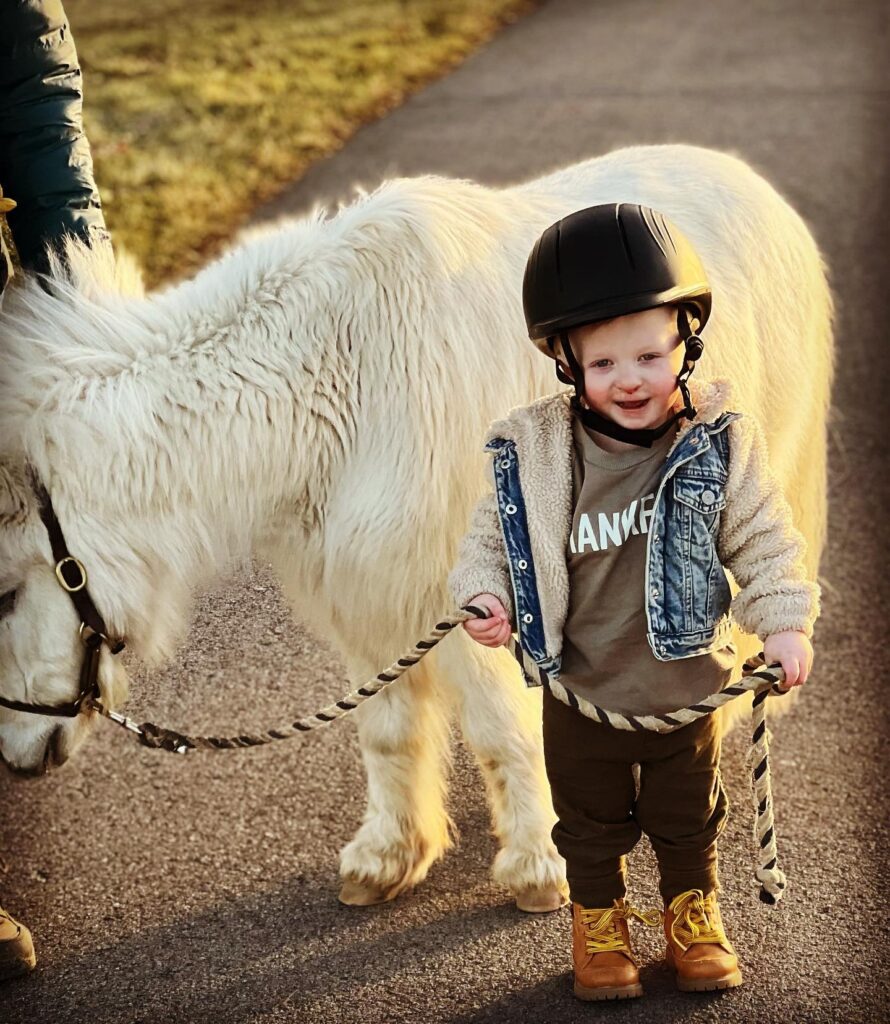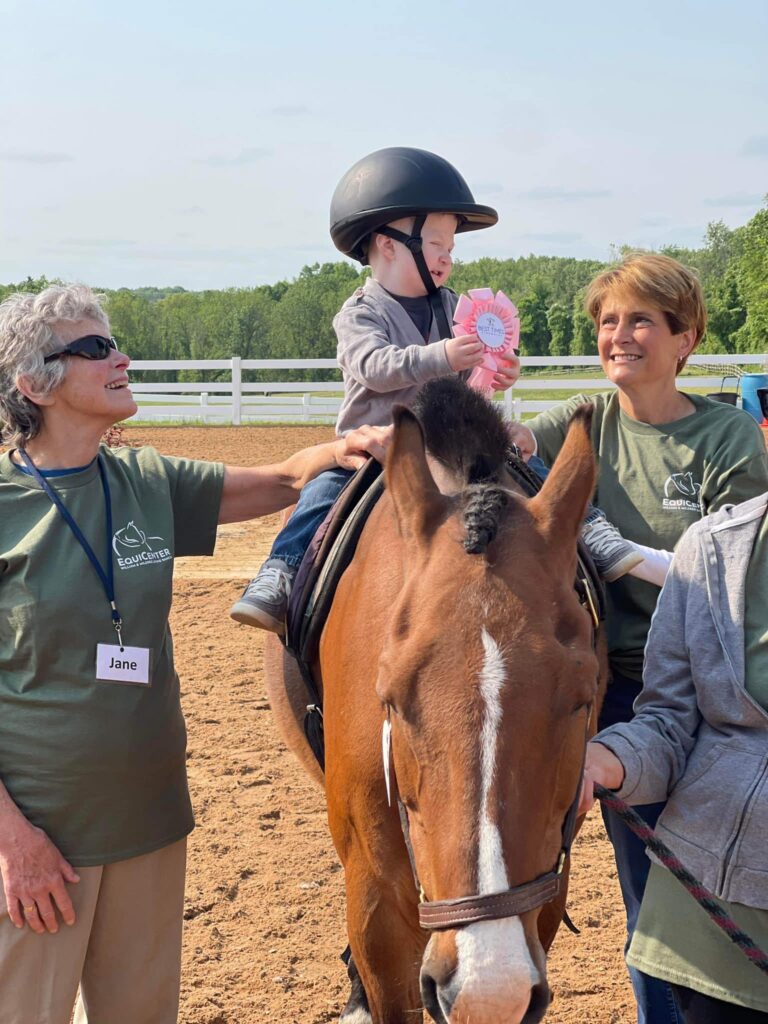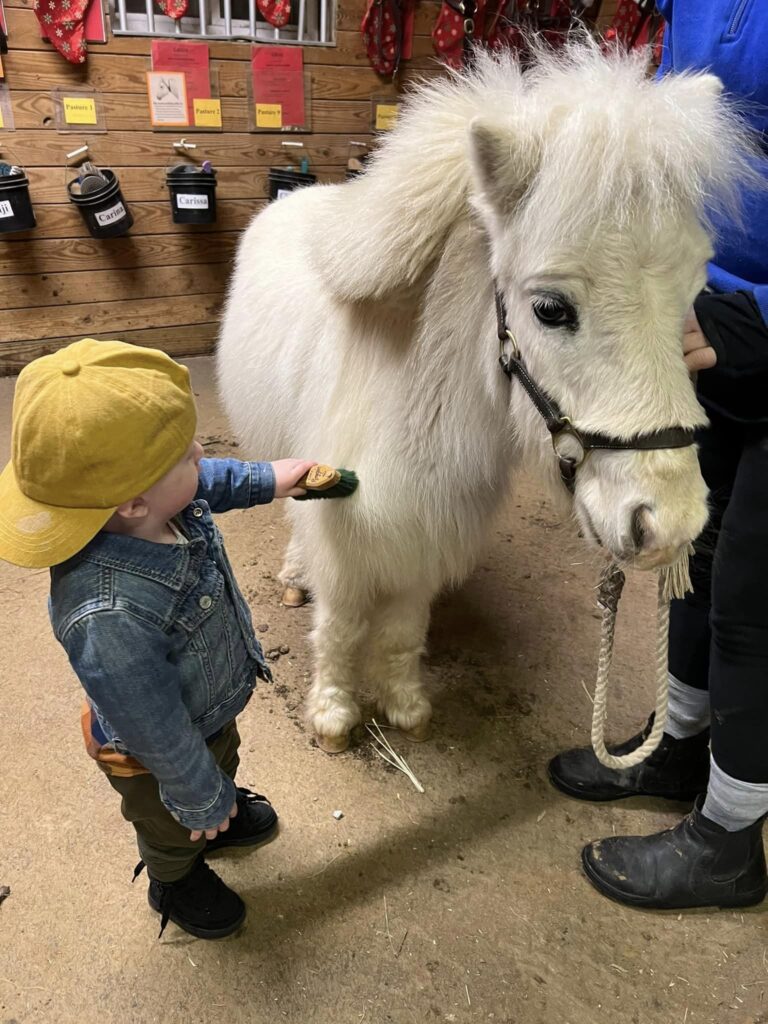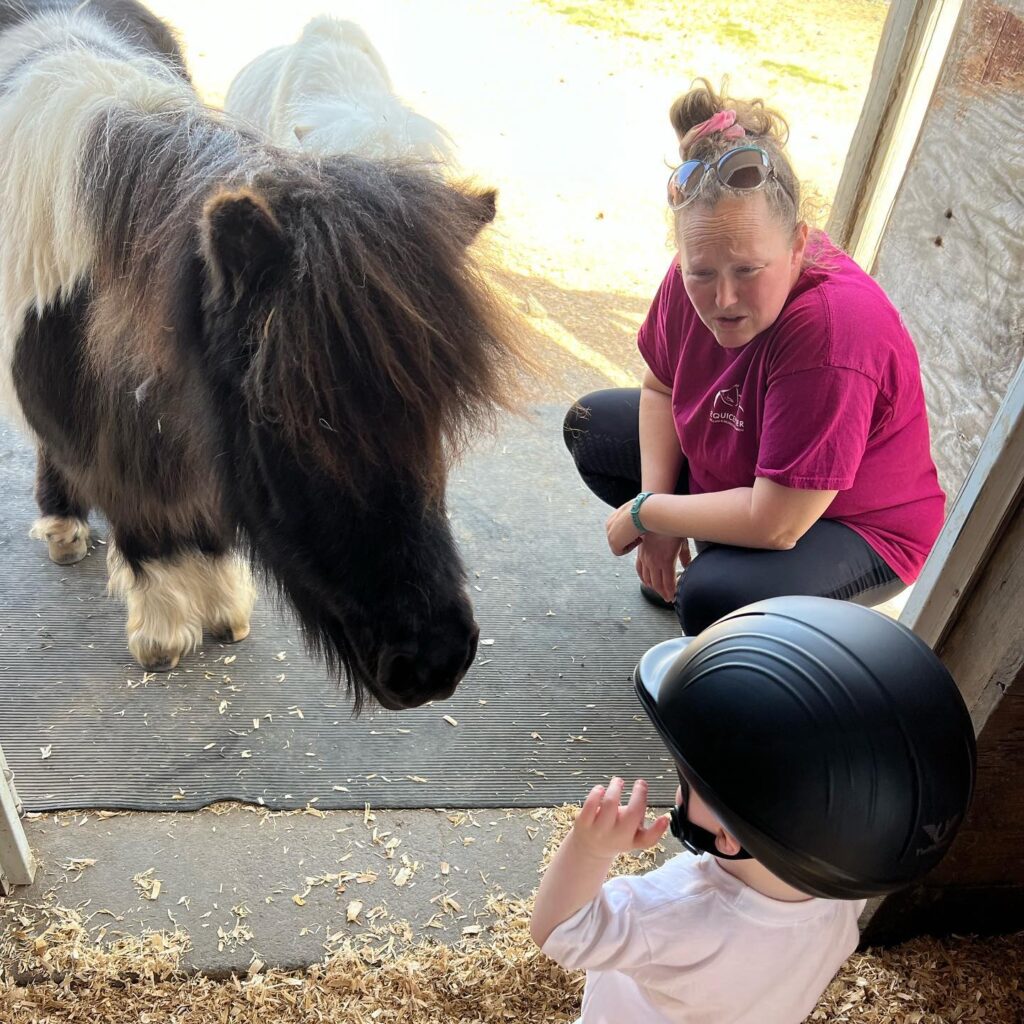
Rolling down the long driveway that leads to the EquiCenter’s barns feels like entering a big budget movie made for horse girls. I crawl down the road at three miles per hour watching the lively horses play cinematically over the rolling green hills on a breezy summer day. After parking and wandering around, I find a barn cat basking in the sun in the middle of a path, clearly unconcerned by the threat of incoming traffic. There is a noticeable yet invisible serene haze that envelops the picturesque property. As a lifelong equestrian, the vibe around your ordinary horse barn is usually more hustle and bustle, with the tang of chaos always in the air. There is a constant looming reminder that horses are huge unpredictable animals. I suddenly have the urge to search for a Truman Show-esque door in this little sliver of heaven.
The EquiCenter, located in Honeoye Falls, is a nonprofit organization that offers unmounted and adaptive riding along with therapeutic horticulture to children and adults with special needs and veterans. The farm is nestled on what can only be described as 200 acres of bliss. Students can ride outside on the many trails or inside in their temperature-controlled arena with special dust-free footing. Everywhere you look you can find a thoughtful detail that allows the entire organization to run ship-shape. Each horse has a personalized grooming bucket, and the indoor arena has multiple ways for students to mount the horses catered to the capabilities of each rider. There is also a room with props and games to engage students during their lessons. With more than 200 volunteers, 175 lessons a week, and a wait list of 150 people, this level of organization and attention to detail is not a nicety but a necessity.
The extent of my knowledge when I arrived began and ended with the equine therapy, but that is just the tip of the iceberg. There is an extensive horticulture program where participants can engage in hands-on planting, maintenance, and harvesting activities in their outdoor garden and greenhouse. The horticulture program not only improves stamina, balance, and cognitive skill but also serves as a means of community aid. The thousands of pounds of vegetables, fruits, and herbs are either used in cooking classes or donated to food security programs throughout the Rochester area. There is an apiary on site that allows for workshops about beekeeping to veterans, school groups, and community members.



In 2018 the EquiCenter launched their Mission Mustang program, which pairs veterans with captive mustangs from the Bureau of Land Management to bond over their shared experiences of loss, anxiety, and displacement. The veterans gentle the mustangs to their new domestic lifestyle under the guidance of professional mustang trainers, and together they are able to transcend the barriers of species to heal from trauma and comfort one another. After the mustangs are amiable to humans and receive light training in the program, they are able to be adopted and begin their new careers.
I know the EquiCenter as the place where lucky lesson horses go to live the good life after they’ve outgrown their previous show career or lesson program.
“[For] a lot of them it’s their second or third career.” Says Lindsay Alberts, Director of Equine Operations at the center. “They’ve all come once they can’t continue doing their job, but they are quiet horses, they can have a little lighter workload. We have little, tiny ponies all the way up to huge draft horses. We need them of all different shapes and sizes.”
A couple of horses I know personally from teaching lessons at a local barn have “retired” to the EquiCenter, one of which I caught participating in a lesson during my visit. His coat is shiny and well kept, and his expression is alert and happy. The child on his back is clearly thrilled to be there, and I allow myself to get a little sentimental thinking of all the children who learned to love these animals by building a relationship with this horse when I knew him, and how many more children would still be able to love him this way going forward.

“Louie is nonverbal, has a developmental delay, and various physical attributes that make some things tricky for him. I had done some research about equine therapy and thought that the horses would be able to help him increase core strength especially.” Lindsay Jewett, communications and stewardship director at Best Buddies International, shares her rave review of her son Louie’s time at the EquiCenter.
“When Louie first started, he hated it, he would scream and cry and just want to be held. But [because of] his incredible instructor Louie now asks about going to the farm all the time and asks about his instructor and the horses. Watching him feel so comfortable and confident around such large animals is so incredibly encouraging to his developmental growth. He is asked to learn verbal commands and has learned so many words since working with the horses.”
The EquiCenter is unlike anything I’ve ever seen, and going in I probably had a better idea of what goes on there than most. What began as a facility with five or six horses on twenty-two acres has blossomed into an enormous program that helps more than one hundred people a week. When the wait list began to grow, instead of shrugging their shoulders the organizers at the EquiCenter went to work planning a larger indoor arena to accommodate more students. No good idea goes unacknowledged as can be seen with the garden, the aviary, and the construction of a new classroom. Where others might be wrapped up in paperwork or red tape, the EquiCenter moves fast and efficiently to provide the most they can for the community with the resources afforded to them. While some might describe it as a well-oiled machine, I think I prefer to think of it more as a workhorse. Moving every day forward with the kindness and sensitivity these animals are known and loved for.
Views: 7




